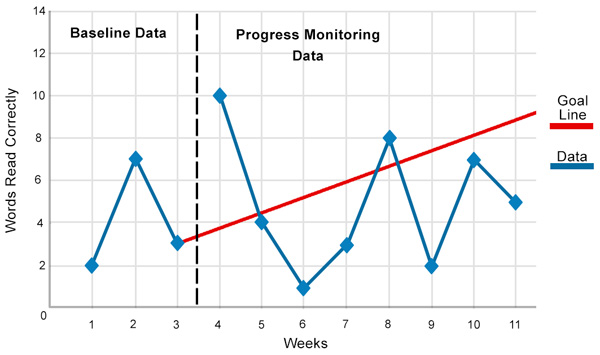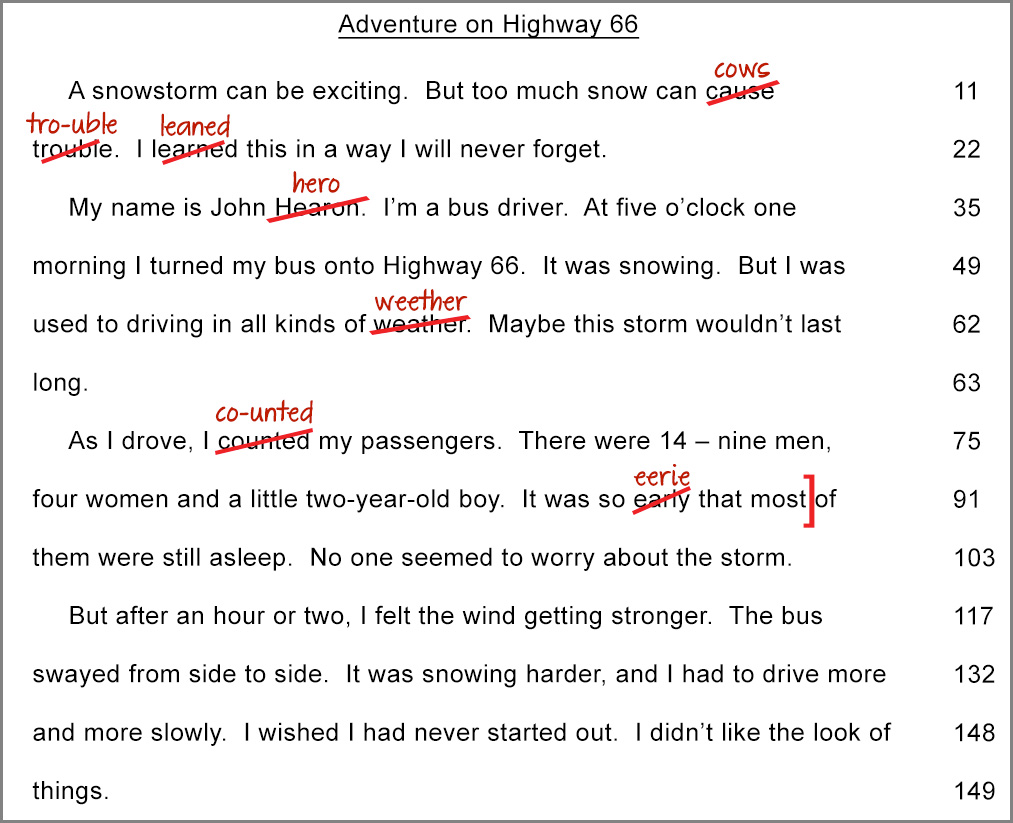Intensive Intervention (Part 2): Collecting and Analyzing Data for Data-Based Individualization
Assessment
- Describe why collecting data is essential in the DBI process. Be sure to mention the two types of data that should be collected.
- Explain the importance of conducting error analyses of students’ data or work samples. Be sure to include the types of information that you can obtain.
- Noah is a third-grade student who has severe and persistent difficulties in reading. He receives intensive, individualized instruction (Tier 3).
- Below is a graph of his progress monitoring data for the last eight weeks. View the graph and note whether Noah is responding to the intervention.
- Describe what the data pattern suggests (i.e., factors that might be contributing to his performance).

This chart represents Noah’s progress monitoring data. The x-axis is labeled “Weeks” and numbered from one to 11 in one-week increments. The y-axis is labeled “Words Read Correctly” and is numbered zero to 14 in step-word increments. A vertical dotted line divides the graph at between Weeks 3 and 4. The left side of his divide is labeled “Baseline Data,” while the right side is labeled “Progress Monitoring Data.” Noah’s goal line begins at Week 3 and indicates the following goals for his reading: three words per minute in Week 3, just below four words per minute in Week 4, just above four words per minute in Week 5, five words per minute in Week 6, six words per minute in Week 7, just below 6.5 words per minute in Week 8, just above seven words per minute in Week 9, eight words per minute in Week 10, and 8.5 words per minute in Week 11.
Noah’s data line suggests the following correct responses per minute: two words per minute in Week 1, seven words per minute in Week 2, three words per minute in Week 3, 10 words per minute in Week 4, four words per minute in Week 5, one word per minute in Week 6, three words per minute in Week 7, eight words per minute in Week 8, two words per minute in Week 9, seven words per minute in Week 10, and five words per minute in Week 11.
- Next, conduct an error analysis of Noah’s passage reading fluency probe using the attached error analysis form.
Click here and print a copy of the form.
Click here to view the scored probe.Scored probe

Error Categories Actual Word Student Responses 








cause cow X X trouble tro-uble X learned leaned X Hearon hero X weather weether X counted co-unted X early eerie X X Created by the Iowa Department of Education and made available by Doing What Works. Used under a Creative Common License.(Close this panel)
- Based on the information on the error analysis form, what type of errors is Noah typically making?